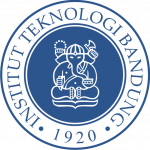Bureaucratic Reform is one of the government’s efforts to achieve good governance and to implement fundamental reforms and changes to the government administration system, especially through institutional (organizational) aspects, management, and human resources. Through bureaucratic reform, an effective and efficient government administration system is being organized.
The acceleration of bureaucratic reform is being faced with the challenges of the vast territory of Indonesia, the number of work units, and the variety of types of services. A massive bureaucratic reform acceleration strategy is being needed and has an impact that can be directly felt by the community.
The Integrity Zone (ZI) is a strategy to accelerate Bureaucratic Reform through the development of a role model that is clear from corruption (WBK) and excellent service (WBBM). The focus of ZI development is on each individual of work units that can build an anti-corruption culture and provide excellent services, thus the impact can be felt directly by the community.
The predicate of Integrity Zone (ZI) is being given to government agencies whose leaders and staffs are committed to realizing WBK/WBBM through bureaucratic reform, especially in terms of preventing corruption and improving the quality of public services.
Towards to anti-corruption culture, later, abbreviated as Towards WBK, is a predicate given to a work units/areas that fulfills most of the Management Changing, Management Structuring, Human Resource System Management Structuring, Supervision Strengthening, and Performance Accountability Strengthening.
Towards to Clean and Serving Bureaucratic Area , later, abbreviated Towards WBBM is a predicate given to a work units/areas that fulfills most of the Management Changing, Management Structuring, Human Resource System Management Structuring, Supervision Strengthening, Performance Accountability Strengthening, and Strengthening the Quality of Public Services.
I. FULFILLMENT
- Change Management
i. Formation of Work Team
ii. Integrity Zone Development Plan
iii. Monitoring and Evaluation of WBK/WBBM Development
iv. Changes in Mindset and Work Culture - Management Arrangement
i. Fixed Operational Procedures (SOP) Main Activities
ii. Electronic Based Government System (SPBE)
iii. Public Information Disclosure - HR Management System Management
i. Employee Needs Planning in accordance with Organizational Needs
ii. Internal Mutation Pattern
iii. Competency-Based Employee Development
iv. Determination of Individual Performance
v. Enforcement of Discipline Rules/Code of Ethics/Employee Code of Conduct
vi. Personnel Information System - Strengthening Accountability
i. Leadership Engagement
ii. Management of Performance Accountability - Strengthening Supervision
i. Gratification Control
ii. Implementation of SPIP
iii. Community Complaints
iv. Whistle-Blowing System
v. Handling of Conflict of Interest - Improving the Quality of Public Services
i. Service Standard
ii. Excellent service culture
iii. Complaint Management
iv. Assessment of Satisfaction with Services
v. Use of Information Technology
II. REFORM
- Change Management
i. Commitment in Change
ii. Leadership Commitment
iii. Building a Work Culture - Management Arrangement
i. Business Process Map Affects Job Simplification
ii. Integrated Electronic Based Government System (SPBE).
iii. Digital Transformation Delivers Benefit Value - Human Resources Management System Management
i. Individual Performance
ii. Employee Assessment
iii. Violation of Employee Discipline - Strengthening Accountability
i. Increasing the achievement of work unit performance
ii. Giving Rewards and Punishment
iii. Performance Logical Framework - Strengthening Supervision
i. Control Mechanisms
ii. Handling of Public Complaints
iii. Whistle-Blowing System - Improving the Quality of Public Services
i. Public Service Efforts and/or Innovations
ii. Handling of Service Complaints and Consultations
1. Signing of Integrity Pact Documents
2. Declaration of Integrity Zone Development
3. Development of the Integrity Zone at ITB :
i. Implementation of the Corruption Prevention Program
ii. The Role of the Internal Oversight Unit (SPI) in the Development of the Integrity Zone
iii. Integrity Building Unit (UPbI)

